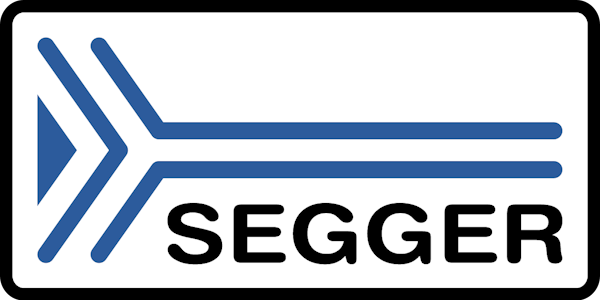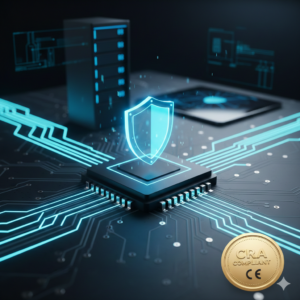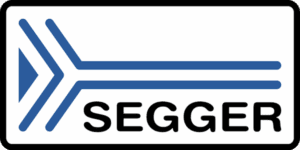
Embedded systems perform dedicated functions in critical sectors like automotive, healthcare, industrial control, and defense. With the increasing connectivity of these systems, ensuring robust cybersecurity has become a no-brainer to safeguard against cyber attacks, ensure critical safety and reliability of systems and secure data. As the threat landscape keeps evolving, embedded systems engineers need to adapt to new approaches and technologies to keep up. Especially now that the European Union has acknowledged that a cyber security certificate is required for products released in the European market in 2025, you can put your trust in Logic Technology to provide you with a Solution in-line with the EU Cyber Resilience Act.
Our brands


Our brands


Related articles

NEW – SEGGER Launches emBoot-Secure: A Drop-In Solution for CRA-Compliant Firmware Updates
With the Cyber Resilience Act approaching, secure firmware updates are no longer optional. Discover how SEGGER’s emBoot-Secure provides a ready-made, CRA-compliant answer. This new solution ensures only manufacturer-signed code enters...
Read more
The Top 5 Vulnerabilities in Embedded Software and How to Prevent Them
Read more
Why continuous monitoring for vulnerabilities is essential in embedded systems
Read more
Cyber Resilience Act: Critical Cybersecurity Requirements
Read more
PRESS RELEASE – Logic Technology Appointed European Distributor for Lattix by CodeClinic
Read more
Exein Analyzer
Exein Analyzer helps identify threats to determine your organization’s cyber posture. Integrated with asset identification tools, you can scan the security of your IoT fleet with ease. This tool has easy integration with the most popular build tools such as Yocto and BuildRoot, so that security can be implemented right from day zero.
Exein Runtime
End-to-end security solution with AI integration and machine learning for IoT devices and embedded systems. On-device security that guarantees an ongoing threat monitoring and detection even without an internet connection. Written entirely in Rust, its core is built to be flexible, extensible, and easy to use.
emBoot-Secure
emBoot-Secure is SEGGER’s Cyber Resilience Act-compliant solution for secure and verifiable firmware updates on embedded devices. This end-to-end approach protects embedded devices against unauthorized firmware modifications, intellectual property theft, and device cloning. It ensures that only authentic, manufacturer-approved firmware is installed, using a public-key cryptographic architecture that keeps the private signing key protected at all times. In the context of the EU Cyber Resilience Act (CRA), secure updateability is a core requirement for modern embedded systems. emBoot-Secure provides a robust foundation for meeting these regulatory demands by protecting devices throughout their entire lifecycle, from production to long-term operation in the field.
emCrypt
Designed with both efficiency and security in mind, emCrypt serves as a reliable encryption toolkit, offering all of the key components needed for today's secure protocols. In a world full of connected devices, keeping data secure is crucial. With emCrypt, users can trust that their embedded devices are protected against potential threats.
emSecure
emSecure is a digital signature suite for embedded systems to protect vital products and assets, offering 100% protection against hacking. Based on asymmetric encryption algorithms with two keys, SEGGER's digital signature suite ensures protection against hacking: signatures cannot be forged by the reverse engineering of the firmware. What's more: emSecure can make it impossible to create a clone of an embedded device by simply copying hardware and firmware. And it can do much more, such as securing firmware updates distributed to embedded devices and authenticating licenses, serial numbers, and sensitive data.
emSSH
SEGGER’s emSSH is a secure shell login enabling protected access to any server application in a product. It can be used in almost any product – target-independent in native computer applications and in embedded targets. A wide range of options means maximum compatibility. It can be configured for a minimal memory footprint, ideal for small memory systems. emSSH is portable – a complete software written in ANSI C, and is compiler and target independent.
emLib
emLib is a collection of software modules such as, cryptographic modules and data integrity checks for different purposes. It includes AES and DES encryption as well as CRC and ECC.
emSSL
emSSL provides comprehensive support for the latest TLS protocols, offering advanced features without the constraints of open-source or attribution-required licenses. It can be seamlessly integrated into free, commercial, or proprietary products without the need to disclose the combined source code. Delivered in ANSI C source code, emSSL ensures full transparency, allowing auditors to inspect all included modules. Its independence from specific compilers and target systems makes it ideal for both embedded software and PC applications. Additionally, emSSL is compatible with Linux, macOS, and Windows. Designed with embedded systems in mind, emSSL is optimized for high performance and minimal memory usage in both RAM and ROM. It is highly configurable to meet specific speed or size requirements, allowing unused features to be excluded and additional features to be easily added.
IoT Compliance - Navigating a Complex Regulatory Landscape
The IoT landscape is characterized by a complex regulatory environment that presents significant challenges for businesses. The multitude of overlapping regulations, varying requirements across jurisdictions, and the rapidly evolving threat landscape create a formidable obstacle course for organizations. Moreover, ensuring the security and compliance of the entire supply chain, from component manufacturers to software developers, adds another layer of complexity. Ultimately, building and maintaining consumer trust in the face of these challenges is paramount for long-term success in the IoT market.
The regulatory environment for IoT is a patchwork of overlapping and sometimes conflicting requirements. Key regulations impacting the IoT sector include:
- EU Cybersecurity Act: This comprehensive legislation mandates incident reporting, encourages certification, and imposes strict security standards on IoT devices.
- Cyber Resilience Act: Expanding on the Cybersecurity Act, this regulation introduces even stricter requirements for device manufacturers, distributors, and importers, focusing on security by design and lifecycle management.
- UK Product Security and Telecommunications Infrastructure (PSTI) Bill: This UK-specific legislation mandates incident reporting, vulnerability disclosure, and regular security updates for IoT devices.
- NIS2 Directive: A broader and stricter version of the original NIS Directive, this regulation imposes stringent cybersecurity requirements on a wider range of organizations, including IoT service providers.
- GDPR: While primarily focused on data protection, GDPR has significant implications for IoT devices that collect and process personal data.
US Cyber Trust Mark: A voluntary labeling program designed to enhance IoT device security through consumer information. - SEC Cybersecurity Incident Reporting Rules: Requiring public companies to disclose material cybersecurity incidents, including those affecting IoT infrastructure.

Gevorg Melikdjanjan
Security | Reliability | Data Solutions
Expert on Cyber Security
Let me help you create a great security solution for your IoT and edge devices.
Cookie Consent
We use cookies to improve your experience on our site. By using our site, you consent to cookies.
This website uses cookies
Websites store cookies to enhance functionality and personalise your experience. You can manage your preferences, but blocking some cookies may impact site performance and services.
Essential cookies enable basic functions and are necessary for the proper function of the website.
Google Tag Manager simplifies the management of marketing tags on your website without code changes.
Statistics cookies collect information anonymously. This information helps us understand how visitors use our website.
Google Analytics is a powerful tool that tracks and analyzes website traffic for informed marketing decisions.
Service URL: policies.google.com (opens in a new window)
Clarity is a web analytics service that tracks and reports website traffic.
Service URL: clarity.microsoft.com (opens in a new window)
Marketing cookies are used to follow visitors to websites. The intention is to show ads that are relevant and engaging to the individual user.
Facebook Pixel is a web analytics service that tracks and reports website traffic.
Service URL: www.facebook.com (opens in a new window)
LinkedIn Insight is a web analytics service that tracks and reports website traffic.
Service URL: www.linkedin.com (opens in a new window)
You can find more information in our Cookie Policy and Privacy Policy.




